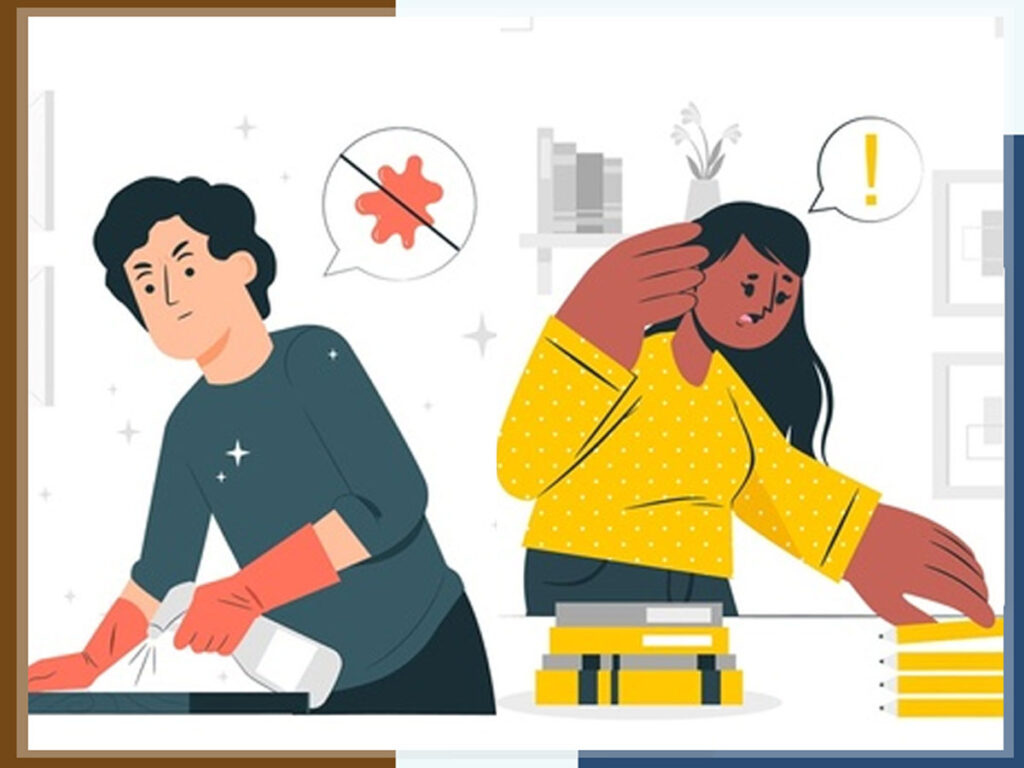Obsessive-compulsive disorder is a mental illness that causes repeated unreasonable thoughts and fears, that cause marked anxiety and distress(obsessions) and the urge to do something over and over again (compulsions)in an attempt to decrease anxiety. The importance of treatment for OCD is to change the patient’s understanding of the obsession and prevent compulsions. Thus the frequency, duration, and distress of the obsession will decrease. Treatments (psychotherapy) for OCD are available in compass clinical services and counseling centers, by licensed psychologists.
Management of OCD
The mainstay of treatment for OCD includes cognitive-behavioral therapy in the form of exposure and response prevention (ERP)and medication management (most commonly with serotonin reuptake inhibitors, or SRIs). CBT for OCD is done by a licensed psychologist (licensed psychologists are available in Compass clinical services) and medication is prescribed by a psychiatrist.
The initial treatment choice depends on illness severity. A mild to moderate severity of the illness can be treated with either ERP or the administration of an SRI alone. ERP is generally recommended as the first-hand treatment for mild to moderate symptoms of OCD.

ERP process
• Psychoeducated patients about the illness and the ERP process.
• During the sessions it is important to provoke OCD on purpose (planned exposures) and resist the urge to engage in compulsions following an unplanned (naturalistic) exposure.
• Patients are then encouraged to work on doing “exposures” i.e. by exposing to the situation that causes the thought so that the patient will learn to tolerate the thought.
• Flooding is a kind of exposure process. Flooding involves keeping the person with OCD in the situation they fear the most and continue to be in the situation until their anxiety reduces, becoming less bothersome.
• Patients are encouraged to expose themselves to triggering situations or thoughts during therapy sessions and when they leave, well-defined ERP homework assignments will be given.
• Response prevention means the identification and prevention of neutralizing strategies like compulsions, avoidance or escape behaviors.
• Response prevention prevents these behaviors from being rewarded, thus the behavior stops.
• The combination of exposure along with the prevention of rituals, leads to the most effective treatment response.
OCD is an often impairing condition that is treatable. But many patients hide their symptoms due to shame, and misdiagnosis and ineffective treatment also exist. Initiation and continuation of appropriate treatment is very important.ERP is recommended as the first-line treatment for mild to moderate OCD. Compass clinical services and counseling center provides treatment for OCD patients.
